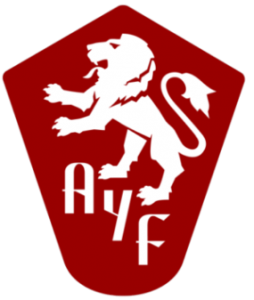South Bay AYF Works With Local High School to Teach Genocide
BY ARMEN KARAPETYAN
TORRANCE, South Bay–For the past three years, Torrance High School has been giving students in the South Bay area a unique opportunity to peer into the history of the Armenian Genocide through presentations from local members of the Armenian Youth Federation.
This year, members of the South Bay’s AYF “Potorig” chapter visited the high school on April 20 to present to some 800 students on the denial of the Armenian Genocide and how Turkey’s ability to escape culpability for its crime continues to fuel the cycle of genocide.
The annual educationals began after Marine Karapetyan, a member of the Potorig Chapter, approached her alma mater with a simple proposal to help the school teach its students about the evils of genocide. Since then her AYF chapter has been actively working with the school administration to organize its April 24 commemorative events.
“Our chapter is small but we have a responsibility to raise awareness within our community of the global and modern repercussions of the Armenian Genocide,” Karapetyan said. “What better way to educate the community then through its schools.”
This passion and drive to help educate others on the history of their people has not gone unappreciated at the school, where many in the faculty have expressed their eagerness to organize more presentations on the topic of genocide.
“I think it’s an issue that not enough people and certainly not enough high school students know enough about it,” said the school’s activities director, Eric Spotts. “It’s a great topic to tie in and increase awareness for young people and even teachers. I think there are some teachers who hopefully got something out of this presentation as well.”
Speaking to six separate class periods throughout the day, “Potorig” members covered the gamut of issues related to the Armenian Genocide, from the historic presence of the Armenian people on the Armenian Plateau to their struggle for civil rights in the Ottoman Empire and how their movement for change was met by massacres, deportations and annihilation.
“We were hoping the students would appreciate our presentation and the significance of it if they were introduced to the people and the culture of Armenia,” said Karapetyan, noting how an understanding of where the Armenian people came from and where they were in their historical and cultural development at the time of the genocide helps place the true destruction of the killings into perspective.
Throughout this year, members from the Potorig chapter have been organizing presentations on the Genocide at local highs chools and colleges. Recently, they presented to students at the University of Southern California studying to become history teachers.
“What we accomplished during these presentations is only an example of what can be done at every school,” said Hasmig Karagozian, Potorig’s chairwoman.



Leave a Reply
Want to join the discussion?Feel free to contribute!